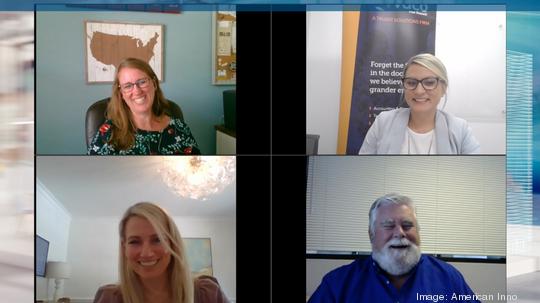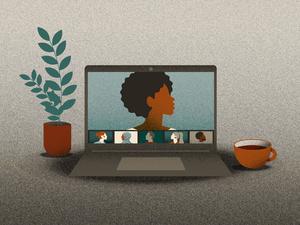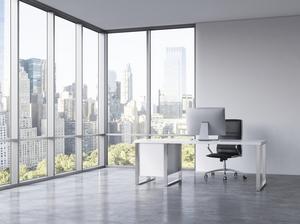
Last year, companies of all sizes and from all corners of the world were forced to send their employees home and adopt virtual work models. Now, as many businesses have begun reopening, employers have realized the pandemic has not only impacted what a work environment might look like, but more importantly, changed the expectations and needs of the employees in those jobs.
During last week's virtual State of Innovation: Employee of the Future event, moderator Deanna Baumgardner, owner and HR consultant of Employers Advantage, talked with Suzanne Baranski, managing partner of Vaco; Caroline Dudley, managing director of Accenture; and J. Rollins, chief executive officer of ETHIX360.
The expert panel examined how employers can reframe company culture to better meet employee needs and how workplace norms have changed. They also discussed the effectiveness of remote technology.
Keep scrolling for the full video recap at the bottom of this article. Here are some key takeaways from the conversation:
What does the "employee of the future" look like to you?
Caroline Dudley: We've seen people who want to bring their whole, authentic selves to work ... One thing we've all learned over this is, when you are not at your best, when you're not able to be yourself, those are the times when you're not able to bring the most to your clients, to your company. The employee of the future, to me, is about really taking the individual strengths that humans have there, and how do corporations use those strengths to fill the evolving needs we have. I see a lot of things like doubling down on skills; I see a lot of things about making sure the culture of companies matches the expectations of the talent that's out in the market; and I see a lot of learning agility.
Suzanne Baranski: We look for somebody who has good work ethic. I think the days of having to have somebody in front of you with the butt in the seat are over. If you have to have somebody right in front of you all the time, I think maybe you made a bad hire. Most employees generally want to do well at their job ... A lot of people take pride in their job, and so I think if you look for work ethic and somebody who has the right kind of attitude, it shouldn't really matter how they're getting their job done, as long as they're getting it done.
The exact same hybrid-model setup may work for one person and not for another, even if they’re in the same role and level. Do you think teams and groups need to be on the same page, or do you think hybrid models can be customized for the individual?
J. Rollins: If nothing else, we learned during Covid is that not only what worked yesterday probably won't work today, and what worked today might not work tomorrow, but what worked this morning might not work this afternoon. We altered the way our product works to follow a process we term agile policy management. And by that, within minutes you can effectively update, change, approve, edit a policy and distribute it electronically to all employees and receive attestation back from employees from their smartphone that they're aware of the new policy and agree to abide by it. Hybrid is a great word to use here; I also think agility and flexibility are really key because the whole basis of policy management in our world changed overnight.
According to an Accenture survey, 83% of workers prefer a hybrid model, but hybrid could mean a variety of things. It could be a 50/50 split, a couple days a month in the office or at home, etc. What does “hybrid” mean to you, and is there an ideal ratio?
Baranski: We are doing an experiment at Vaco where we're going to be hybrid, where we don't have a policy of how often someone has to be in the office. I think every employee is an individual. They're different, and the makeup of their life is different. We have some young employees in South End, who if they want to pop into the office, they can. Then you have another who has kids and a family and lives in Mooresville, and forcing them to be there during certain time frames may be more challenging for their life.
Dudley: There are obviously safety standards. We operate in more than 40 cities in North America ... We have teams truly working at it. I think the most important thing to incorporate as you're marking those standards for yourself as to what hybrid means is the voice of your people. In addition to using the voices of our people, we ensure it's the voices of everybody ... (Diversity) leads to a better outcome. There are new levels of needs that people have, and historically, it's been a little bit taboo to be honest about those and to really be authentic about what those needs are. What's incredibly important is that culture of equality, where people feel comfortable speaking up and bringing those to the table.
Rollins: It became quickly apparent to us after the shutdown that we were not going to be able to safely reopen in the same location. We'd grown very very fast — there were offices originally designed for one person that had two people in it. We were crawling on top of each other. When employees came back, we wanted them to be productive and part of that is wanting them to feel safe, so we relocated. We wanted to make sure, no matter what happened, that our job as an employer was not going to impact somebody's decision on what they had to do. When we did go back, we had some who said, "I really want to come back to the office. I felt isolated working at home." And we have some who come back now part time, one or two days a week, as needed. We are all over the board.








